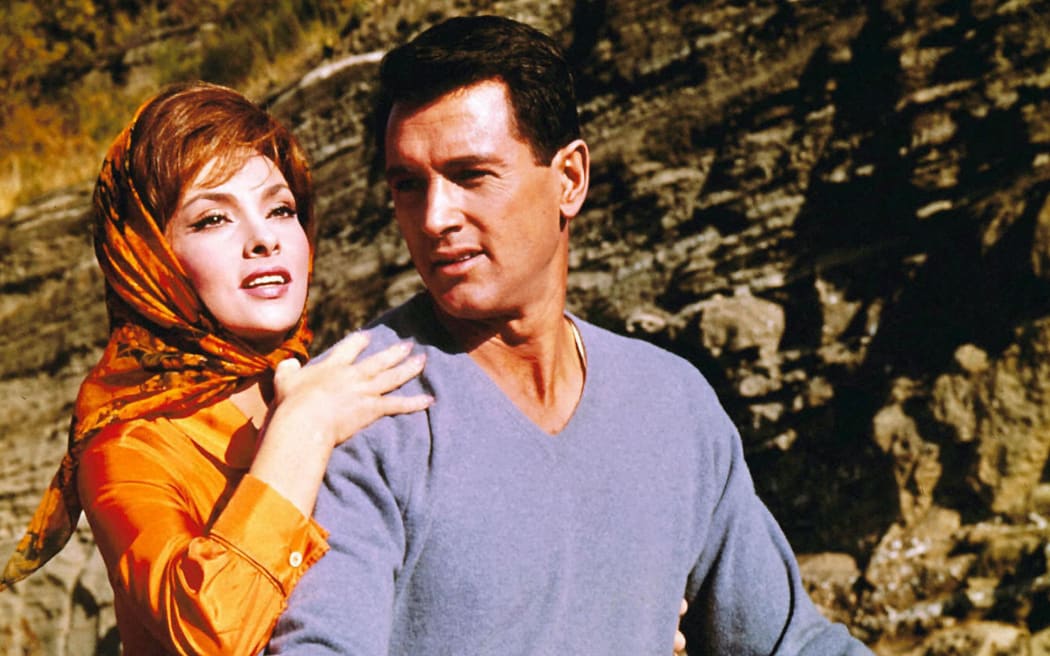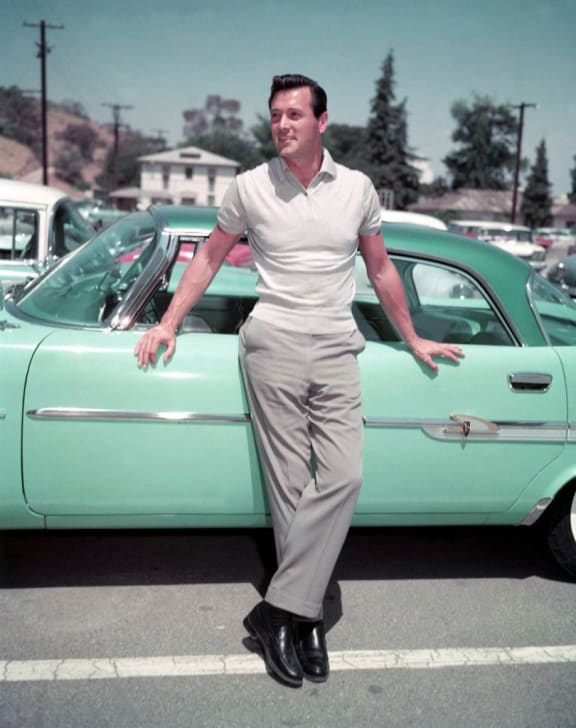Rock Hudson was one of the biggest heart throbs in the 1950s and 60s during the Golden Age of Hollywood.
Hudson was a closeted gay man; when he died of AIDS in 1985, it was a huge international story.
The director of a new film about his life, All That Heaven Allowed, says it repositions Hudson “in the firmament of the great stars of his day”.

Photo: AFP / 7 PICTURES
It was an opportunity to tell a fascinating story, director Stephen Kijak tells Jesse Mulligan.
“A story that had a real social impact given what happened in 1985 when he died, and it was revealed that he wasn't just a gay man, but he had AIDS and it really shifted the cultural conversation, not just here in the States, but internationally.”
Hudson was a huge star under the old studio system, Kijak says.
“He towered over everybody. He was a huge romantic lead, he played in action, he was in melodramas, you name it from the 50s and 60s.
“And then of course he had a string of successful comedies, big hits with his co-star Doris Day, and then the late Gina Lollobrigida.”
Hudson made over 65 feature films in his career and later was a big star in television, but his sexuality was kept secret, Kijak says.
“You just couldn't come out back then, especially if you were that high profile and were making that much money for the studio.
“He was a contract player for Universal and they really protected him, and he was one of their biggest assets.”
This was pre-liberation, he says.
“This was very much pre-Stonewall, these are in the days of the Joseph McCarthy, the Red Scare, the Lavender Scare, when gay people were aligned with communism and hunted down and blacklisted and revealed in the paper, and bars would be raided, it's a whole history of that kind of pre-liberation life.”
Nevertheless, Hudson made the most of his life, Kijak says.
“He had fame, he had wealth and was very well-liked and lived quite openly within Hollywood.
“I think a lot of gay and lesbian people in the industry and in fact, in most aspects of life lived relatively open secrets, which is a slight contradiction from what we might have assumed, but he certainly did.”
Kijak's film draws substantially on a book of the same name by Mark Griffin.
“He had talked to everybody and what we did in the film is construct the heart of it out of interviews with a group of gay men who were in his life, either as lovers or friends or a wingman or a co-star.
“That stretches from those days in the 50s all the way through to the other side of the AIDS crisis. So, you really get this kind of generational portrait that gives you a really intimate look, not just mid-century gay life, but his life and his friendships and his social world.”
One of the “prize interviews” is with Lee Garlington, he says.
“He and Rock were boyfriends in about the early ‘60s around the 1963. And him and his husband now live in the South Island of New Zealand. They escaped when Trump got in the first time and decamped.”
Hudson’s legacy was significant, he says.
“It was a bombshell. People don't quite understand or remember, how it was back in ‘85. We're still very early in the AIDS crisis, there's not a lot of information, there's a lot of fear, there's a lot of confusion about what it even is how you get it.
“It's completely confined, it is assumed, to be just a disease that strikes gay men, drug users, it's very subcultural.”
Hudson's announcement of his illness started to slowly change attitudes, he says.

Photo: Photo12 via AFP
“He did a huge amount of good in pushing the conversation about it into the mainstream, because he was just such a beloved figure.
“You couldn't get a more perfect example or a representation of virile heterosexual masculinity. The ultimate romantic lead, and it was devastating for a lot of people, it was absolutely a complete shock.”
Hudson left money from his estate to research, he says.
“Money he left from his estate went to found AMFAR, the American Foundation for AIDS research that Elizabeth Taylor ended up spearheading.
“So, you know, whether he knew it or not, he was really a catalyst to change.”
The film is showing at the New Zealand International Film Festival.

